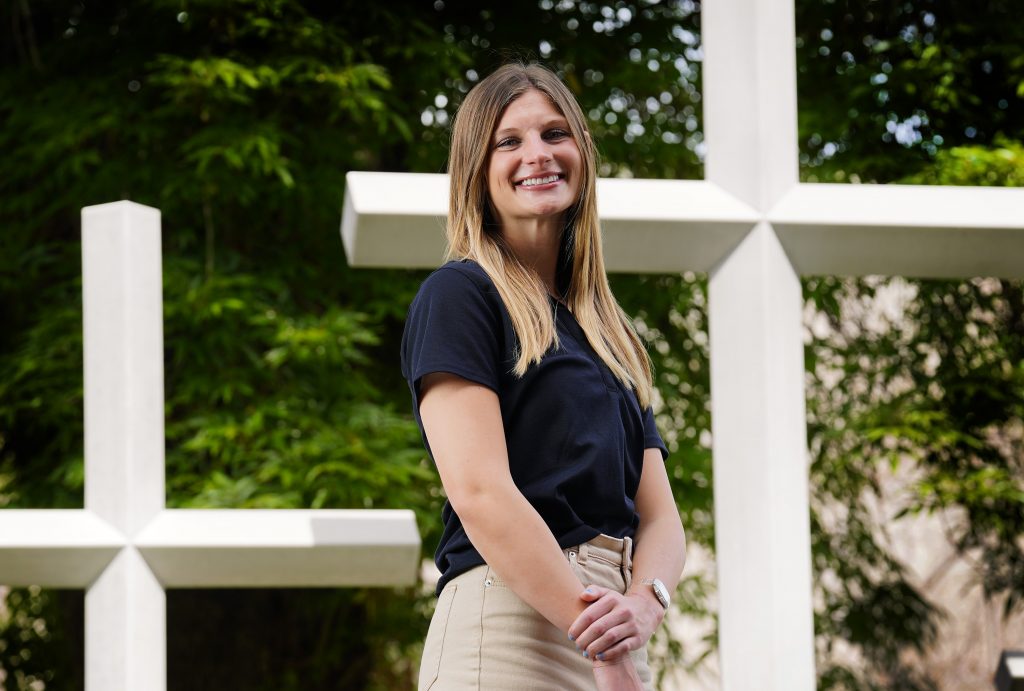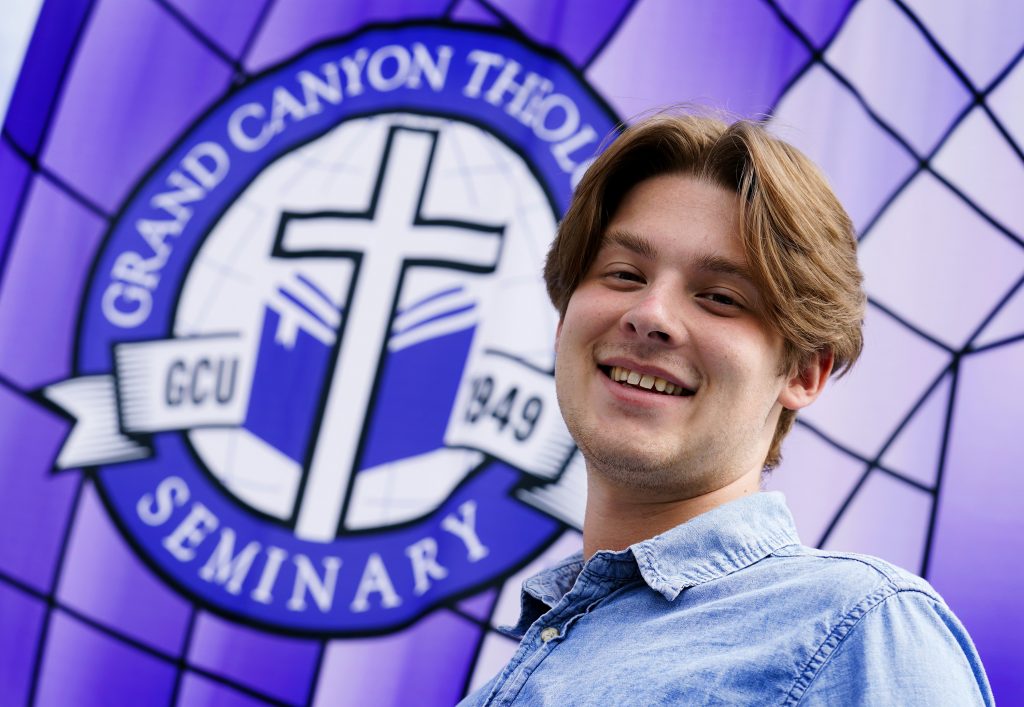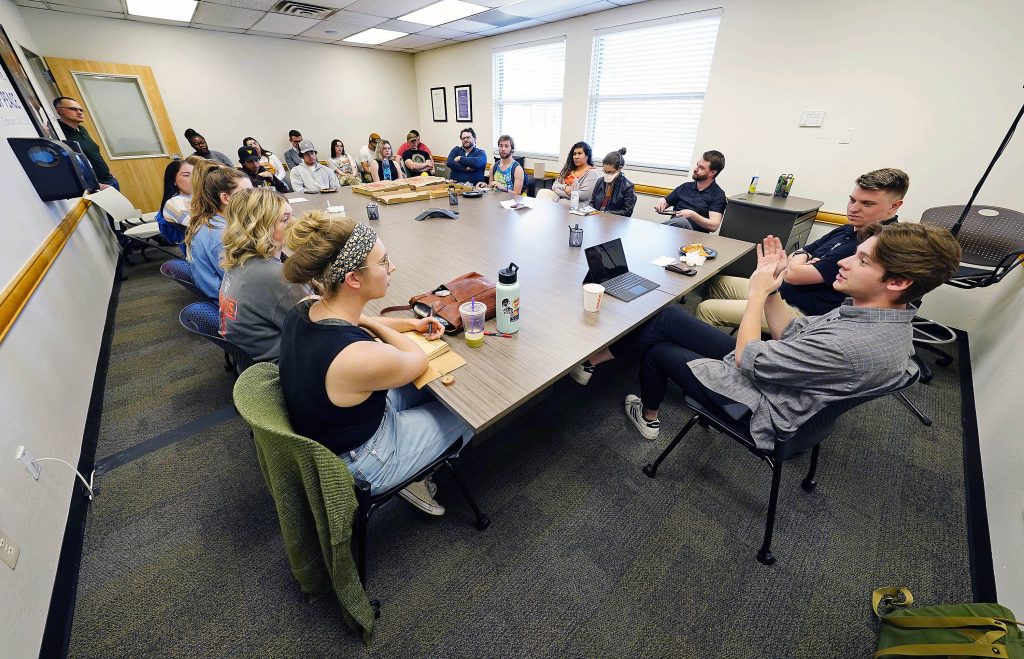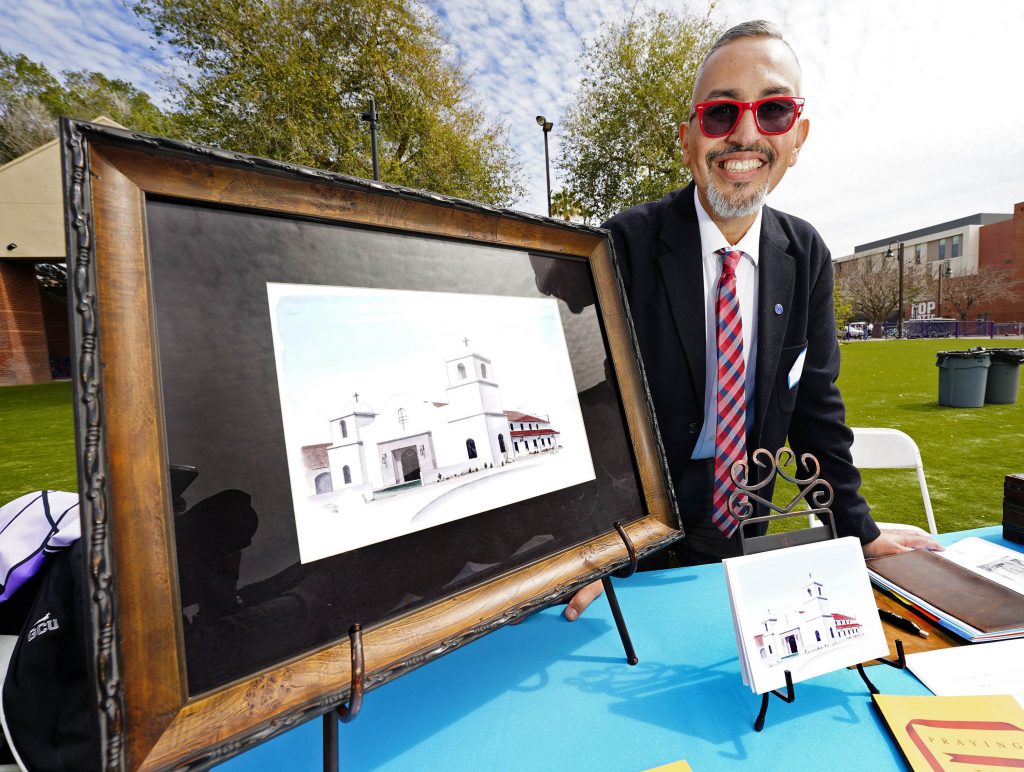
EDITOR'S NOTE: This story originally appeared in the April issue of GCU Magazine. Read the digital version here.
Photos by Ralph Freso
Laney Islas heard her calling in Africa.
She was on a mission trip, where she met a girl who loved stickers.
"She’d put stickers all over her face, and she would just be laughing,” said Islas, a third-year Grand Canyon University student in the Barnabas Pastoral Program, an accelerated degree pathway in which students can earn their bachelor’s degree and their Master of Divinity in five years.
Islas heard the girl laugh but never heard her speak — not until the day they walked along her town’s flooded streets.
“I didn’t think this little girl could speak. But she pulled me back and said, ‘God wants me to tell you that you’re going to be OK, and you don’t need to run. He has you. You just need to trust.’”
That’s when Islas dedicated her life to ministry.
GCU is helping her answer her calling, and not just through the Barnabas Program.
In February, the University announced it will open a 17,000-square-foot space at 27th Avenue and Camelback Road that will serve as the home of the College of Theology’s graduate school, Grand Canyon Theological Seminary.

Since opening in 2016, the seminary has offered classes largely online with on-campus residencies, and while students will have the option to continue online, this groundbreaking space is expected to change the landscape for students and the pastoral community.
The multimillion-dollar initiative, which Dean Dr. Jason Hiles calls a major investment in the West Valley, will include not just the physical location, but the addition of a much-buzzed-about seminary library, along with a bold cut in the cost of campus housing and a significant cut — more than 50% off — in tuition.
Students see the new facility, in a repurposed wing in Building 71, as the next big thing.
“To have classrooms and a space that is OURS is really important to our identity," said fourth-year Barnabas student Alex Stambaugh.
As it is now, students take graduate-level classes wherever the University can eke out a spot. Having a dedicated place, “It separates us a little bit from that undergraduate level,” Stambaugh said, and shows undergrads what lies ahead in their pastoral path.
Lexton Bunting, who will be among the first to start seminary in Building 71 when it opens Sept. 4, said the facility will be much more than just a dedicated area for graduate students.
It will reflect who pastors are at their core: Relationship-driven servants in the community.
“The one thing I’m most excited about is having a group of people that I can see face to face and grow with spiritually who are at the same level,” said Bunting, the Program Development Specialist for the college and seminary and a 2022 alumnus.
The Ohioan, who grew up Southern Baptist among the Amish in a town of 500 before moving to inner-city Seattle, said if he didn’t live a life that advanced God’s Kingdom, “I’d feel like my purpose would be less in life; I’d feel like there was something missing.”

He will be living his purpose in the new space as he pursues his dream of teaching theology.
Islas echoed Bunting’s sentiment of GCU’s seminary community growing together spiritually as they gather together: “We’ve talked about how we feel like it (the new seminary) is going to bring this aspect of family,” and not just between students but between teacher and student. “… It’s just more of that connection.”
Hiles wants that connection to extend beyond GCU’s gates. He wants pastors to see the seminary as a gathering space, use it for fellowship, or to connect with faculty or students for theological discussions, jobs or other opportunities, “like a standing access point for the University.”
Bri Sanborn, Desert City Church Connections Pastor, entered GCU’s gates a few weeks ago for Ministry Week, when she heard about the new seminary facility: “As a pastor, I’m eager to have more resources to develop theologically, but I’m also eager to have somewhere I can send my parishioners.”
That kind of access to the community, Stambaugh said, is invaluable.
Stambaugh has heard pastors say, “It’s so much different here than in the field.”
Making those community connections means students “are able to connect with the outside world and see what pastors really need and hear from their experience,” he said.

Alex Diaz of King of Kings Church, an instructional assistant for the college, sees the seminary facility as a way to grow the local pastoral community. Too often, churches “lose these treasures of our community,” he said.
For GCU to open an on-ground space in the West Valley means encouraging young pastors from the inner city to preach the Gospel in the community they grew up in.
“I love the idea of the school being there for them. This is going to be a blessing to a lot of churches in the Valley,” Diaz said.
One blessing in particular? The seminary library.
It’s being curated to complement the College of Theology’s undergraduate collection, mostly housed in the campus library.
“Theology nerds? They live for the books, the libraries and building your home library,” Stambaugh said. “We’re really excited to have that space, not only to fellowship and talk with people but to read,study and grow in knowledge.”
Diaz said his personal Logos (Bible) software holds about 1,500 books.
“You guys will be surprised how many people will show up at that library. … That library, I’m SO excited about,” Diaz said, his eyes bright.
Laney Islas sees the new seminary and its library as yet one more blessing in her life.
But an even bigger blessing: continuing on the path she started walking on in Africa, one being nurtured right here at GCU.
***
Related content:
GCU News: Pastoral program's 1st year was quite a get-together
GCU News: Seminary's new home to be a game-changer in the West Valley



































































